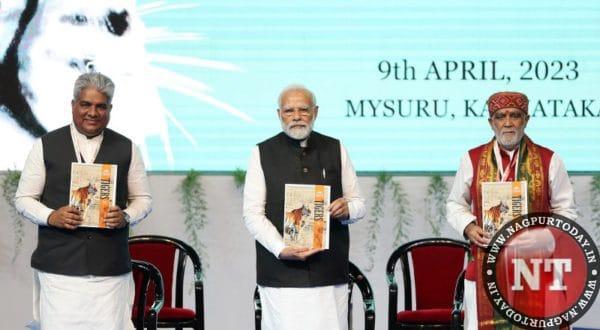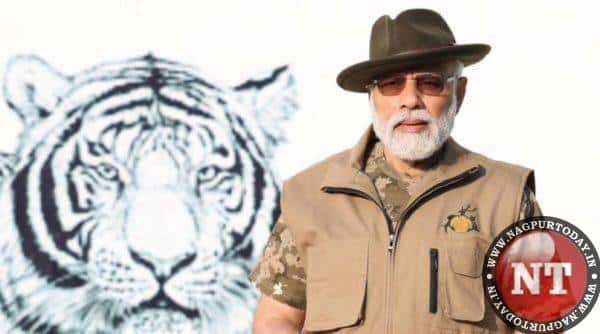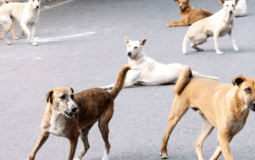New Delhi: Prime Minister Narendra Modi on Sunday released the Tiger Census while inaugurating the International Big Cat Alliance in Karnataka’s Mysuru, the first of its kind in the country, organised to mark 50 years of Project Tiger. The three-day conference will focus on protection and conservation of seven major big cats of the world — tigers, lions, leopards, snow leopards, pumas, jaguars and cheetahs.
Citing data that showed the tiger population in India stood at 3,167 in 2022, Modi said: “The tiger numbers that we have reached shows that this family of ours is growing. This is a moment of pride.” Calling for a standing ovation to celebrate the rise in tiger population, he added, “I’m confident and I assure the world that in the days to come we will achieve more.”
According to the data, the tiger population was 1,411 in 2006, 1,706 in 2010, 2,226 in 2014, 2,967 in 2018 and 3,167 in 2022. Union Minister for Environment, Forest and Climate Change Bhupender Yadav and Minister of State Ashwini Kumar Choubey among others were present at the event.
The Prime Minister said the success of ‘Project Tiger’ is a matter of pride not only for India but for the whole world. Stating that India has not only saved tigers, but created an ecosystem for it to flourish, he said, “India is a country where protecting nature is part of culture. For wildlife to thrive, it is important for ecosystems to thrive. This has been happening in India,” he said, adding that protecting wildlife was not the issue of just one country, but actually a global one.
Pointing out that cheetahs had become extinct in India decades ago, the Prime Minister referred to the recent initiative where the big cats were brought to India from Namibia and South Africa, and said it was the first successful transcontinental translocation of the big cat. He also highlighted that four cubs had been born from these cheetahs at Kuno National Park in Madhya Pradesh.
In July 2019, the Prime Minister had called for an Alliance of Global Leaders to obliterate demand and firmly curb poaching and illegal Wildlife trade in Asia. Taking that message forward, the International Big Cat Alliance was launched today, officials said. IBCA will focus on protection and conservation of seven major big cats of the world — tiger, lion, leopard, snow leopard, puma, jaguar and cheetah — with range countries harbouring these species being its members.
The Sahyadri or Western Ghats have several tribal communities, who have worked for wildlife and tigers to flourish, Modi noted as he lauded their contribution in conservation efforts. The Oscar-winning documentary ‘The Elephant Whisperers’ also depicts the traditional bond between nature and creatures, he said.
“It is heartening that at the time when we have completed 75 years of Independence, 75 percent of the world’s tiger population is in India. It is also a coincidence that the tiger reserve in India is 75,000 sq km. And in the last 10-12 years, the tiger population has also increased by 75 per cent,” the Prime Minister further said.
Modi, earlier in the day, went on a safari at the Bandipur Tiger Reserve in Karnataka amidst the picturesque surroundings of the towering Western Ghats, as part of programmes to mark 50 years of ‘Project Tiger’. Dressed in a speckled safari clothing and hat, he reportedly covered about 20 kilometres in an open jeep inside the tiger reserve, located partly in Gundlupet taluk of Chamarajanagar district, and partly in H D Kote and Nanjangud taluks of Mysuru district.
















